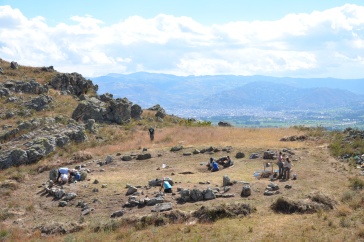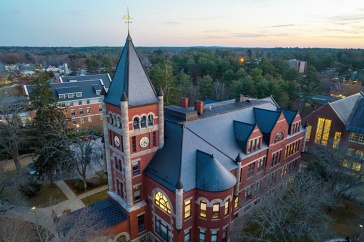|
|
Michael D'Antonio ’77 has written a new book “Mortal Sins: Sex, Crime, and the Era of Catholic Scandal.” As part of a team of journalists from Newsday, D'Antonio won the Pulitzer Prize for his reporting before going on to write many acclaimed books, including “Atomic Harvest” and “The State Boys Rebellion.” He has also written for Esquire, The New York Times Magazine, and Sports Illustrated. We asked him to tell us more about his new book. Here is what he had to say.
Why did you decide to write this book? What about it appealed to you?
MD: I start by considering events or issues that are significant enough to merit a book length treatment. I then try to determine if there's a gap in the record -- untold stories, neglected perspectives, new developments -- that leave an opening for something more. Finally, I try to find subjects populated with interesting people who have notable achievements. In this instance, many experts deemed the abuse crisis a truly historic development, and the people who have created the movement for victims/survivors are complex, sometimes deeply flawed, but ultimately very inspiring. Through them I was able to tell a story that is as compelling as fiction but both true and momentous.
What was most challenging about writing this book?
MD: I struggled to understand how an institution that does so much good could also act so badly in response to crimes committed against children. In the end, of course, it came down to a misguided sense of duty that placed the reputation of bishops and other higher-ups above doing what common sense tells us is the right thing. As with so many scandals, the cover-up is as appalling as the original offenses. In this one it's all the worse because it was carried out by those who claim to be moral leaders.
Your book weaves extensive personal interviews and anecdotes with factual information about the scandal and those involved. How long did you work on researching this book before you started writing it? What were some of the more memorable moments during this process?
MD: I have followed the abuse crisis since it began, in the 1980s, and I spent about three years working intently on the book.
Two interviews stand out in my mind. One was a day-long conversation I had with the attorney, Jeffery Anderson, who has devised most of the strategies used to pursue claims on behalf of victims. In that interview Jeff revealed an extremely wild and sometimes troubled past filled with alcohol abuse, risk-taking of all sorts, and the kind of colorful characters and events you would find in a Grisham novel. The second encounter was with retired Archbishop Rembert Weakland, who explained to me the Vatican's deeply flawed response to serious allegations against priests. In both instances I was dealing with forthright people who spoke in an unguarded fashion I rarely encounter.
Sometimes writers are profoundly affected by what they write about. How did writing this book affect you?
MD: It made me feel more skeptical about those who claim authority and more optimistic about the power of some very American-style ideals like equality, liberty, and the dignity of the individual. The people I met, and whom I portray, are brave, determined, self aware and, often, very funny. Although they deal with an extremely serious subject they are not one dimensional. They taught me a lot about how to persevere without succumbing to over-seriousness.
Has the scandal changed the Catholic Church? If so, how?
MD: The church leaders are far more responsive to complaints, more respectful of lay people, and more concerned about the safety of children. These shifts can all be credited to the pressure applied by victims of abuse.
What are your thoughts about the Catholic Church going forward? Has it dealt with the sexual abuse scandal adequately now? Does work remain to be done?
MD: Much more needs to be done because bishops are still mishandling priests who are subjects of complaints and young victims are still coming forward. I do feel optimistic about Pope Francis, though. And I think he may move to change things in momentous ways. It's not hard to imagine he would allow for married priests and a greater role for women. This would bring the institution into the 20th century, if not the 21st.
UNH Professor Donald Murray was one of your mentors. Can you talk more about that?
MD: Don was the first professor I met at UNH, and his first words to me were encouraging. He taught me to respect my own curiosity and to believe it is possible to make a living at writing. I use what I learned from him every day, especially the part about finding what is good in a piece of work and starting my revisions form there. He was a teacher who became a mentor and eventually a friend, and the country is seeded with people who learned the trade, and a compassionate approach to it, from Don.
What advice would you give to college students seeking a writing career?
MD: The landscape is very different from the one that Don Murray and Andy Merton prepared me to explore in the 1970s. Today it all seems to be about being an entrepreneur and a writer at the same time. I would advise a younger person to devote equal attention to these demands. Find subjects to write about and dive in, even if that means hauling yourself across the country, or around the world, to do it. (This is often much easier done when you are starting out, by the way.) But make sure others are ready and willing to receive and distribute what you produce. Fortunately the web offers a multitude of options in this regard. So get out there and do it.
What are you working on now?
MD: I am working on a few different projects, including a biography and some nonfiction works that I am developing with partners. Unfortunately, I'm not able to discuss them publicly at the moment, but if my own experience is any indicator, they will be good stories in the end.

















































